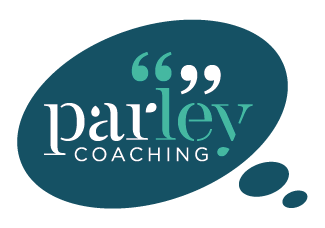Lighthouse
Don’t we often give more focus to what we are trying to achieve, than to the more important and difficult question of who are we trying to be?
Part of your planning for the new year might usefully reverse this and reflect on who you want to be in the context of your work.
First things first. Values.
Values are what you want to define you.
The result of your family and societal nurturing, they are what most matters to you.
There is so much great material on values. But my favourite has always been (and remains) the thinking of the incredible Dr. Steve Peters, most famous for The Chimp Paradox. More recently a client sent me the link to his appearance on the Steven Bartlett podcast linked below, and it is well worth listening to from start to finish. The brilliance of Peters is in rationalising complexity into something we can use for ourselves – it isn’t just for scientists. And part of his teaching is around what he calls the Human part of our mind (as opposed to the Computer and the Chimp). The Human (approximating to the thoughts emanating from your pre-frontal cortex) are our rational, thought -through, intentional musings on values and our sense of what we would like to be. To access who you want to be, access your values.
There are understandable reservations about over-subscribing to values. Even Barack Obama, who talked a lot about values, in an interview last year with LinkedIn Editor-in-Chief, Dan Roth, counselled against believing that work was all about values. Sometimes it has to be more about getting the work done and I’d agree (Barack will be delighted to hear). Life has an important just doing and collaboration side to it.
But… a dive into values will help you clarify what is most important to you, will help you make the right choices in the year to come.
Over many years, my amazing Alliance partner, Eleanor McBrien, has been developing a coaching model around intentional identity curation for our working lives. Eleanor McBrien’s Lighthouse model brilliantly steers you through a process of reflection and planning, and starts with values. I have been coached by Eleanor using the model, and the thinking I was able to do around values enabled me to then proceed with confidence to the next critical stage of the model:
How do you want to be?
Not Who. How. This transports the theory of values to the reality of your behaviours. It takes your thinking to choices, actions and commitment.
How do people see you?
And if you want to change how people see you, to be perceived in a way more congruent with your values, what behaviours exude this aspirational identity, and what behaviours should be avoided? What should be your personal Lighthouse?
To illustrate:
Do you want to be seen as rigorous, brave and fair, perhaps? If so what are the behaviours associated with creating that working identity? And what might you be doing that blurs the picture? How do you become seen more consistently as rigorous, brave and fair?
Or perhaps you want to be inspiring, creative and compassionate? Again, what behaviours must you nurture to be seen in this way by your colleagues? What choices will you make?
Have a go when you are planning your year. Brene Brown has a neat list of values online. Start there and work through to what behaviours might need to be maintained (celebrated), dialled down, dialled up. Dare to Lead | List of Values – Brené Brown (brenebrown.com). Create a plan.
And/or talk to any of us at The Alliance. This can be a difficult exercise and coaching can help make it easier and support you in making the necessary commitments. It is an ideal process for any new leader, for anybody who is looking to build a clearer identity at work.
Find Eleanor at Eleanor McBrien | The Alliance

